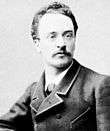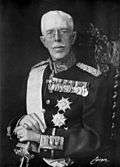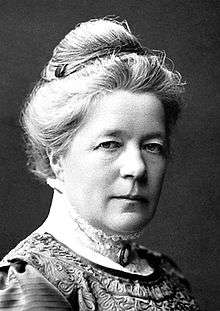1858
| Millennium: | 2nd millennium |
|---|---|
| Centuries: | 18th century · 19th century · 20th century |
| Decades: | 1820s · 1830s · 1840s · 1850s · 1860s · 1870s · 1880s |
| Years: | 1855 · 1856 · 1857 · 1858 · 1859 · 1860 · 1861 |
| 1858 in topic: |
| Humanities |
| Archaeology – Architecture – Art – Literature – Music |
| By country |
| Australia – Brazil - Canada – Denmark - France – Germany – Mexico – Norway - Philippines - Portugal– Russia - South Africa – Spain - Sweden - United Kingdom – United States |
| Other topics |
| Rail Transport – Science – Sports |
| Lists of leaders |
| Colonial Governors – State leaders |
| Birth and death categories |
| Births – Deaths |
| Establishments and disestablishments categories |
| Establishments – Disestablishments |
| Works category |
| Works |
| Gregorian calendar | 1858 MDCCCLVIII |
| Ab urbe condita | 2611 |
| Armenian calendar | 1307 ԹՎ ՌՅԷ |
| Assyrian calendar | 6608 |
| Bahá'í calendar | 14–15 |
| Bengali calendar | 1265 |
| Berber calendar | 2808 |
| British Regnal year | 21 Vict. 1 – 22 Vict. 1 |
| Buddhist calendar | 2402 |
| Burmese calendar | 1220 |
| Byzantine calendar | 7366–7367 |
| Chinese calendar | 丁巳年 (Fire Snake) 4554 or 4494 — to — 戊午年 (Earth Horse) 4555 or 4495 |
| Coptic calendar | 1574–1575 |
| Discordian calendar | 3024 |
| Ethiopian calendar | 1850–1851 |
| Hebrew calendar | 5618–5619 |
| Hindu calendars | |
| - Vikram Samvat | 1914–1915 |
| - Shaka Samvat | 1779–1780 |
| - Kali Yuga | 4958–4959 |
| Holocene calendar | 11858 |
| Igbo calendar | 858–859 |
| Iranian calendar | 1236–1237 |
| Islamic calendar | 1274–1275 |
| Japanese calendar | Ansei 5 (安政5年) |
| Javanese calendar | 1786–1787 |
| Julian calendar | Gregorian minus 12 days |
| Korean calendar | 4191 |
| Minguo calendar | 54 before ROC 民前54年 |
| Nanakshahi calendar | 390 |
| Thai solar calendar | 2400–2401 |
| Wikimedia Commons has media related to 1858. |
1858 (MDCCCLVIII) was a common year starting on Friday (dominical letter C) of the Gregorian calendar and a common year starting on Wednesday (dominical letter E) of the Julian calendar, the 1858th year of the Common Era (CE) and Anno Domini (AD) designations, the 858th year of the 2nd millennium, the 58th year of the 19th century, and the 9th year of the 1850s decade. As of the start of 1858, the Gregorian calendar was 12 days ahead of the Julian calendar, which remained in localized use until 1918.
Events
January–March
- January – William I of Prussia becomes regent for his brother, Frederick William IV, who has suffered a stroke.
- January 14 – Orsini affair: Felice Orsini and his accomplices fail to assassinate Napoleon III in Paris but their bombs kill 8 and wound 142 people. Because of the involvement of French émigrés living in Britain, there is a brief anti-British feeling in France, but the emperor refuses to support it. Orsini is executed by guillotine on March 13 of this year.
- January 25 – The "Wedding March" by Felix Mendelssohn becomes a popular wedding recessional after it is played on this day at the marriage of Queen Victoria's daughter Victoria, Princess Royal, to Prince Friedrich of Prussia in St James's Palace, London.[1]
- February 11 – Lourdes apparitions: 14-year-old peasant girl Bernadette Soubirous of Lourdes has a vision at the grotto of Massabielle, the first in a series of 18 events which will come to be considered as Marian apparitions.
- February 13 – Richard Francis Burton and John Hanning Speke become the first Europeans to discover Lake Tanganyika.[1]
- March 21 – Indian Rebellion: British troops retake Lucknow.
- March 30 – Hymen Lipman patents a pencil with an attached eraser in the United States.
April–June
- April 16 – The Wernerian Natural History Society, a former Scottish learned society, is wound up.
- April 19 – Treaty with Yankton Sioux Tribe.
- April 28–May 1 – Battle of Grahovac between Ottoman and Montenegrin forces.
- May–July – Mahtra War: Peasants in the Governorate of Estonia, Russian Empire revolt against ongoing serfdom, which is officially abolished in 1816.
- May 11 – Minnesota is admitted as the 32nd U.S. state.
- May 13 – John Ruskin begins a tour of Europe. He considers it a significant turning point in his life.[2]
- May 14 – Dr David Livingstone's 6-year Second Zambesi Expedition arrives at the African coast.[3]
- May 19 – The Marais des Cygnes massacre is perpetrated by pro-slavery forces in Bleeding Kansas.
- June 2 – Comet Donati, the first comet to be photographed, is discovered by Giovanni Battista Donati and remains visible for several months afterwards.
- June 13–June 17 – Treaty of Tientsin signed, ending the first part of the Second Opium War.
- June 16 – Abraham Lincoln accepts the Republican Party nomination for a seat in the United States Senate, delivering his "House Divided" speech in Springfield, Illinois.
- June 17 – The Atlantic and North Carolina Railroad opens, operating 95 miles from Goldsboro, North Carolina to New Bern, North Carolina.[4]
- June 20 – The last rebels of the Indian Rebellion of 1857 surrender in Gwalior.
- June 23 – Police of the Papal States seize Jewish boy Edgardo Mortara and take him away to be raised as a Catholic.
July–September
- July
- Camillo Benso, Count of Cavour goads Austria into attacking Sardinia.
- Fifty-Niners stream into the Rocky Mountains of the western United States during the Pike's Peak Gold Rush.
- July 1 – Joint presentation of papers by Darwin and Wallace announcing a theory of evolution by natural selection are read at London's Linnean Society.
- July 8 – Peace treaty to end the Indian Rebellion.
- July 12 – The Advertiser, the daily news paper still in circulation, begins publication in Adelaide, Australia.
- July 17 – The Lutine bell, is salvaged and subsequently hung in Lloyd's of London.
- July 28 – In Bengal/India, British officer William James Herschel uses the hand impression of Rajyadhar Konai as a contract fingerprint signature.
- July 29 – The United States and Japan sign the Treaty of Amity and Commerce, negotiated by Townsend Harris.
- August – The first aerial photography is carried out by Nadar from a moored balloon in France.[5]
- August 2 – The Government of India Act, passed by the Parliament of the United Kingdom, transfers the territories of the British East India Company and their administration to the direct rule of the British Crown, through a Secretary of State for India.[6]
- August 3 – John Hanning Speke discovers Lake Victoria, source of the river Nile.[1]
- August 5 – Cyrus West Field and others complete the first transatlantic telegraph cable after several unsuccessful attempts. The service ends on September 1 due to weak current.
- August 7 – A football match played under unknown set of rules is held between Melbourne Grammar School and Scotch College.
- August 11 – First ascent of the Eiger.
- August 16 – U.S. President James Buchanan inaugurates the new trans-Atlantic telegraph cable by exchanging greetings with Queen Victoria. However, a weak signal forces a shutdown of the service in a few weeks.
- August 21 – The first of the Lincoln–Douglas debates is held.
- September – Cochinchina Campaign: French warships under Charles Rigault de Genouilly attack and occupy Da Nang in Vietnam.
- September 11 – First ascent of Dom, the third highest summit in the Alps.
October–December
- October 21 – Jacques Offenbach's operetta Orpheus in the Underworld, featuring music associated with the can-can, is first performed in Paris.
- October 28 – Macy's department store, founded by R.H. Macy, opens for business in New York City.
- November 12 – Johann II, Prince of Liechtenstein, succeeds to the throne aged 18; he will rule until his death in 1929, the second-longest in European royal history and the longest precisely documented tenure of any monarch without a regent since antiquity.
- November 16 – The 2,400,000th day of the Epoch of the Modified Julian Day is reached.
- November 17 – The city of Denver, Colorado, is founded.
- December 29 – The Northern Railway Company is established in Madrid, Spain, with a purpose to construct the Northern Railway.
- December 30 – Paraguay expedition: Seventeen U.S. Navy warships, under the command of William Shubrick, depart from Uruguay on a mission to demand concessions from Paraguay, and to go to war if necessary.
Date unknown
- William M. Tweed begins his 13-year term as "Boss" of Tammany Hall.
- Homosexuality legalised in the Ottoman Empire.
- The haute couture firm of Worth and Bobergh is established in Paris.
- The Miners Association is established in Cornwall, England, UK.
- Feudalism and serfdom in Bulgaria are abolished in the Ottoman Empire (practically in 1880).
Births
January–June
- January 7 – Eliezer Ben-Yehuda, Russian-born advocate of the Hebrew language (d. 1922)
- January 10 – Heinrich Zille, German illustrator and photographer (d. 1929)
- January 11 – Harry Gordon Selfridge, American department store magnate (d. 1947)
- January 13 – Oskar Minkowski, Lithuanian physician (d. 1931)
- January 22 – Frederick Lugard, 1st Baron Lugard, English soldier, explorer and colonial administrator (d. 1945)
- January 27 – Cornelia Hubertina Doff (Neel Doff), French author of Dutch origin (d. 1942)
- January 28 – Eugène Dubois, Dutch paleoanthropologist and geologist who discovered Pithecanthropus erectus (later redesignated Homo erectus), or "Java Man" (d. 1940)
- February 5 – Mahlon Pitney, American politician and Associate Justice of the Supreme Court of the United States (d. 1924)
- February 15 – John Joseph Montgomery, American glider pioneer (d. 1911)
- February 18 – Wilhelm Schmidt, German pioneer of superheated steam for use in locomotives (d. 1924)
- February 19 – Charles Alexander Eastman, Native American author, physician, reformer, helped found the Boy Scouts of America (d. 1939)
- February 24 – Friedrich Schrempf, German editor and politician (d. 1912)
- March 6 – Samuel Untermyer, American lawyer (d. 1940)
- March 9 – Gustav Stickley, American furniture designer and architect. (d. 1942)
- March 10 – Kokichi Mikimoto, Japanese pearl farm pioneer (d. 1954)
- March 18 – Rudolf Diesel, German inventor (d. 1913)
- March 23 – Ludwig Quidde, German pacifist, recipient of the Nobel Peace Prize (d. 1941)
- March 28 – Joséphin Péladan, French novelist (d. 1918)
- March 30 – DeWolf Hopper, American actor, singer, comedian, and theatrical producer (d. 1935)
- April 23 – Max Planck, German physicist, Nobel Prize laureate (d. 1947)
- April 30 – Mary Dimmick Harrison, wife of President Benjamin Harrison (d. 1948)
- May 8 – Heinrich Berté, Austrian operetta composer (d. 1924)
- May 26 – Horace Smith-Dorrien, British general (d. 1930)
- June 16
- King Gustaf V of Sweden (d. 1950)
- William D. Boyce, founder of the Boy Scouts of America (d. 1929)
- June 20
- Charles Waddell Chesnutt, African American author, essayist, political activist (d. 1932)
- Paul Maistre, French general (d. 1922)
- June 28 – Otis Skinner, American stage & film actor (d. 1943)
July–December
- July 9 – Franz Boas, German anthropologist (d. 1942)
- July 14 – Emmeline Pankhurst, English suffragette, mother of Christabel, Sylvia and Adela Pankhurst (d. 1928)
- July 16 – Petar Bojović, Serbian field marshal (d. 1945)
- July 21 – Maria Christina of Austria, queen consort of Spain, second wife of Alfonso XII of Spain (d. 1929)
- August 1 – Hans Rott, Austrian composer (d. 1884)
- August 2 – Emma of Waldeck and Pyrmont, queen consort and regent of the Netherlands (d. 1934)
- August 10 – Georgi Todorov, Bulgarian general (d. 1934)
- August 11 – Christiaan Eijkman, Dutch physician and pathologist, recipient of the Nobel Prize in Physiology or Medicine (d. 1930)
- August 13 – G. E. M. Skues, Newfoundland-born British inventor of nymph fly fishing (d. 1949)
- August 15 – E. Nesbit, English children's novelist (d. 1924)
- August 18 – Thomas S. Rodgers, American admiral (d. 1931)
- August 19 – Alfred Dyke Acland, British military officer (d. 1937)
- August 27 – Giuseppe Peano, Italian mathematician (d. 1932)
- September 1
- Andrew Jackson Zilker, American philanthropist (d. 1934)
- Carl Auer von Welsbach, Austrian chemist and inventor (d. 1929)
- September 12 – J. H. Smith, American politician and pioneer (d. 1956)
- September 16 – Bonar Law, New Brunswick-born Prime Minister of the United Kingdom (d. 1923)
- October 3 – Eleonora Duse, Italian actress (d. 1924)
- October 12 – John L. Sullivan, American heavyweight boxing champion (d. 1918)
- October 15 – William Sims, American admiral (d. 1936)
- October 19 – George Albert Boulenger, Belgian naturalist (d. 1937)
- October 27
- Theodore Roosevelt, 26th President of the United States, recipient of the Nobel Peace Prize (d. 1919)
- Saitō Makoto, Japanese admiral, 19th Prime Minister of Japan (d. 1936)
- November 10 – Heinrich XXVII, Prince Reuss Younger Line (d. 1928)
- November 20 – Selma Lagerlöf, Swedish writer, Nobel Prize laureate (d. 1940)
- November 23 – Albert Ranft, Swedish theatre director and actor (d. 1938)
- November 26 – Katharine Drexel, American Roman Catholic saint (d. 1955)
- November 30 – Jagadish Chandra Bose, Indian physicist (d. 1937)
- December 11 – Kata Dalström, Swedish politician (d. 1923)
- December 19 – Adolf Schiel, German-born officer in Boer armed forces (d. 1903)
- December 22 – Giacomo Puccini, Italian composer (d. 1924)
- December 25 – Herman P. Faris, American temperance movement leader (d. 1936)
Date unknown
- Alina Jägerstedt, Swedish trade unionist and Social Democrat (d. 1919)
Deaths
January–June
- January 5 – Joseph Radetzky von Radetz, Austrian field marshal (b. 1766)
- January 8 – Caroline Cornwallis, English writer (b. 1786)
- January 9 – Anson Jones, 4th and last President of the Republic of Texas (suicide) (b. 1798)
- March 4 – Commodore Matthew Calbraith Perry, American naval officer (b. 1794)
- April 7 – Anton Diabelli, composer (b. 1781)
- May 11 – Joseph Gensoul, French surgeon (b. 1797)
- June 3 – Julius Reubke, German composer (b. 1834)
- June 28 – Auguste de Montferrand, French architect (b. 1786)
- Jane Marcet, British science writer (b. 1769)
July–December
- August 14 – Tokugawa Iesada, the 13th shogun of Tokugawa shogunate of Japan (b. 1824)
- September 9 – Thomas Assheton Smith II, politician and cricketer (b. 1776)
- September 17 – Dred Scott, American slave (b. ca 1795)
- November 3 – Harriet Taylor Mill, philosopher and women's rights advocate (b. 1807)
- November 12 – Aloys II, Prince of Liechtenstein (b. 1796)
- November 15 – Li Hsu-pin, military leader (b. 1817)
- November 17 – Robert Owen, social reformer (b. 1771)
- November 24 – Wincenty Krasiński, Polish military leader (b. 1782)
- December 3 – Joseph Marie Élisabeth Durocher, geologist (b. 1817)
- December 13 – Karl Ludwig Philipp Zeyher, botanist (b. 1799)
- December 17 – Mustafa Reşid Pasha, Ottoman statesman (b. 1800)
Date unknown
- Amelia Griffiths, British phycologist (b. 1768)
- Georgios Kountouriotis, Prime Minister of Greece (b. 1782)
References
- 1 2 3 Penguin Pocket On This Day. Penguin Reference Library. 2006. ISBN 0-14-102715-0.
- ↑ Ruskin, John (1982). Hayman, John, ed. Letters From The Continent, 1858. University of Toronto Press. ISBN 0-8020-5583-4.
- ↑ "The Zambesi Expedition". Livingstone Online. Retrieved 2011-08-26.
- ↑ CommunicationSolutions/ISI, "Railroads — prior to the Civil War", North Carolina Business History, 2006, accessed 1 Feb 2010.
- ↑ "Brief history of aerial photography". www.findaerialphotography.com. 2007. Retrieved 2015-01-02.
- ↑ Wolpert, Stanley (1989). A New History of India (3rd ed.). Oxford University Press. pp. 239–40. ISBN 0-19-505637-X.
This article is issued from Wikipedia - version of the 12/1/2016. The text is available under the Creative Commons Attribution/Share Alike but additional terms may apply for the media files.






